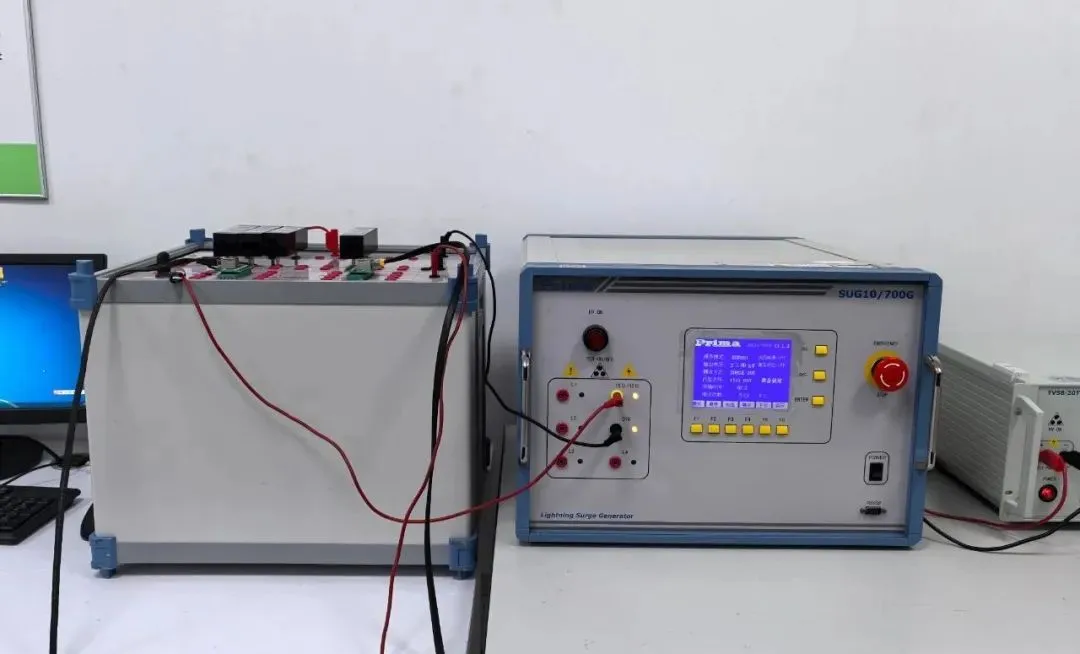
How to Apply for One FCC Certificate for Multiple Models?
In today’s fast-evolving electronics market, many companies face the challenge of applying for fcc certification for mULtiple product models. Each application requires both time and cost, and if each model needs to be applied for separately, the expenses can quickly add up. However, if certain conditions are met, you can use a single test to cover an entire product series, potentially saving up to 50% of the certification costs, making the certification process easier and more efficient.

Core Requirements for Series FCC Certification
To apply for a single fcc certificate for multiple models, the products in the series must have a high degree of consistency, particularly in the following three key areas:
1. Main Control Chip: The main control chip is the "brain" of the product, determining critical functions such as signal processing and data transmission. If different models use different chips, they may handle signals and currents differently, affecting electromagnetic radiation, signal transmission, and other performance aspects, potentially preventing them from passing a unified FCC certification.
2. RF Module: The RF (radio frequency) module is responsible for transmitting and receiving wireless signals. If different models use different RF modules, their signal strength, stability, and transmission range may vary, making it impossible to apply for a unified FCC certification.
3. Antenna Design: Antenna design significantly impacts signal transmission quality and electromagnetic radiation characteristics. Even if other components are the same, differences in antenna design can lead to variations in electromagnetic radiation and signal interference results during the fcc testing.
If these three core components remain consistent, even if there are differences in non-core aspects like color or memory, a series FCC certification can be applied for collectively.
Steps for Series FCC Certification Application
Once the above conditions are met, the process of applying for a series FCC certificate can be broken down into three major phases:
1. Select a Main Model for Full Testing: Choose a representative model to undergo full fcc testing to ensure it accurately represents the performance of the entire series. The tests will cover areas like electromagnetic compatibility, RF performance, and safety. For example, when testing a tablet series with wireless capabilities, the tests will check for interference with other devices, frequency accuracy, signal strength compliance, and more.
2. Submit Technical Documentation for All Models: After completing the tests for the main model, submit the technical documents for all other models in the series, such as circuit schematics, PCB layouts, and component lists. These documents help certification agencies fully understand the technical characteristics of each model and ensure they meet the requirements for series certification.
3. Assign a Unique Suffix for Each Model: Each model must have its own unique fcc id number as an identifier. This number allows the certification body to distinguish between different models, and consumers can use it to look up certification details for the product.
Pitfalls to Avoid
There are several common “pitfalls” to watch out for during the application process:
- Frequency Differences: If the products operate on different frequency bands (e.g., 2.4GHz vs. 5GHz), their signal propagation characteristics and interference resistance will vary, making it impossible to apply for a unified FCC certification.
- Power Differences: The power level directly impacts signal strength and electromagnetic radiation. If different models have different power levels, their FCC certification requirements will differ, and they cannot be combined into a single application.
- Antenna Position Variations: Even if the antenna design is the same, if the antenna positions differ (e.g., the antenna in a phone might be positioned at the edge of the screen or at the bottom of the body), the signal transmission will be affected, requiring separate certifications for each variation.
Applying for a series FCC certificate can significantly REDuce certification costs, as long as the core components of the products are consistent and the correct application procedures are followed. If you have any doubts or are unsure whether your products meet the necessary conditions for a series application, feel free to REACH out, and I can help you assess whether a series application is suitable for your products.
Email:hello@jjrlab.com
Write your message here and send it to us
 What is the EN 61326-2-3 Standard?
What is the EN 61326-2-3 Standard?
 Why Do Smart Sockets Need IEC 60884 Certification?
Why Do Smart Sockets Need IEC 60884 Certification?
 Why Retest the Device if the 5G Module Already Has
Why Retest the Device if the 5G Module Already Has
 Overview of IEC 62087 Test Standard
Overview of IEC 62087 Test Standard
 CISPR 25 Test Standard Compliance Guide
CISPR 25 Test Standard Compliance Guide
 IEC/UL/CSA 62368-1 Electrical Distance Testing
IEC/UL/CSA 62368-1 Electrical Distance Testing
 Canada Wireless Device IC Certification RSS-210 Te
Canada Wireless Device IC Certification RSS-210 Te
 FCC Part 15.231 for Wireless Remote Controls and S
FCC Part 15.231 for Wireless Remote Controls and S
Leave us a message
24-hour online customer service at any time to respond, so that you worry!




